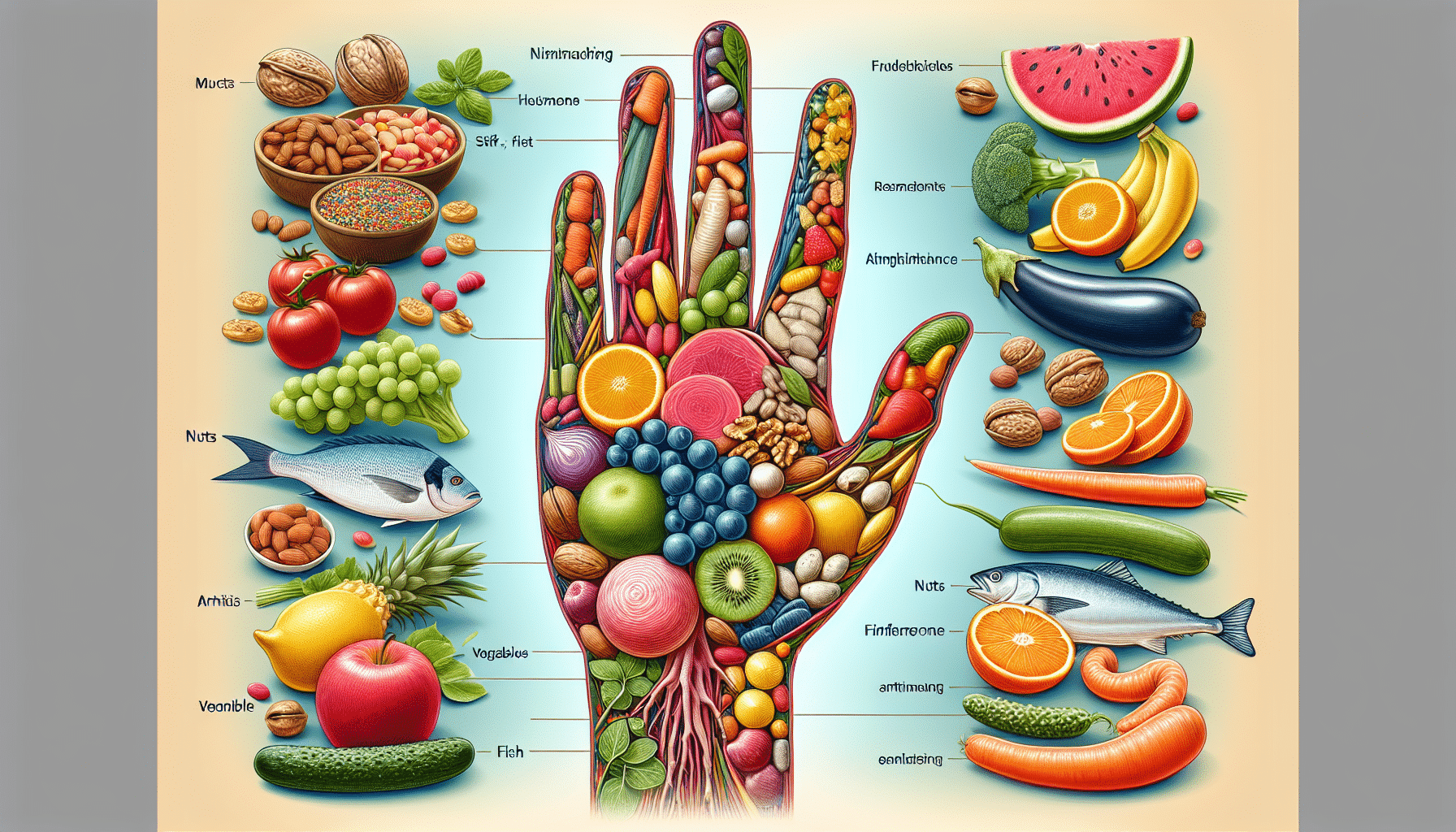
Have you ever wanted to make positive changes in your life but struggled to stick with them?
Well, the art of habit tracking might just be the solution you’ve been looking for. In this article, we will explore various tools and techniques that can help you develop and maintain healthier habits. By tracking your progress and holding yourself accountable, you can transform your life one habit at a time.
So, grab a pen and paper, and let’s dive into the world of habit tracking together!
Setting Goals for Habit Tracking
Identifying your desired habits
Setting goals for habit tracking starts with identifying the habits you want to develop or change. Think about the areas of your life that you want to improve or the habits that will contribute to your overall well-being. Whether it’s exercising regularly, eating healthier, getting enough sleep, or prioritising self-care, take some time to reflect on the habits that align with your personal values and goals.
Setting SMART goals
Once you have identified your desired habits, it’s important to set goals that are specific, measurable, achievable, relevant, and time-bound – also known as SMART goals. For example, instead of saying, “I want to exercise more,” a SMART goal would be, “I will exercise for at least 30 minutes, five days a week, for the next three months.”
Setting SMART goals helps you create a clear roadmap for habit tracking and gives you a sense of direction and purpose. It also allows you to track your progress more effectively and make adjustments as needed.
Creating a habit tracking plan
After setting your SMART goals, it’s essential to create a habit tracking plan that outlines how you will track your habits.
Consider using a habit tracking app, a physical journal, or other tools that will help you monitor your progress.
Decide on a tracking frequency, whether it’s daily, weekly, or monthly, and establish a routine for reviewing and analyzing your data. Additionally, make sure to incorporate rewards and incentives for achieving milestones along the way to keep yourself motivated.
Choosing the Right Habit Tracking Tools
Using smartphone apps
When it comes to habit tracking, smartphone apps provide a convenient and accessible way to monitor your habits on the go. There are numerous habit tracking apps available, offering a range of features such as reminders, data analysis, and progress charts.
Explore different apps and choose one that aligns with your specific needs and preferences. Look for apps with user-friendly interfaces and customisable tracking options to make your habit tracking experience enjoyable and effective.
Exploring habit tracking wearables
For those who prefer a more hands-free approach to habit tracking, wearable devices like fitness trackers or smartwatches can be a great tool. These devices come equipped with habit tracking functionalities, such as step counting, sleep tracking, and calorie monitoring.
By wearing a habit tracking wearable, you can effortlessly collect data about your habits throughout the day. This data can then be synced with your smartphone or computer for a comprehensive view of your progress.
Opting for manual tracking methods
If technology-based solutions don’t resonate with you, manual tracking methods can be just as effective. Consider using a physical journal or a habit tracking template to record your habits. You can create your own personalised habit tracker or find pre-designed templates online.
Manual tracking allows for a more tactile and creative approach to habit tracking, as you can use different colours, symbols, and annotations to track your progress. The key is to find a method that suits your style and preferences.
Tracking Habits with Technology
Utilising habit tracking apps
Habit tracking apps provide a wealth of features that can simplify and enhance your habit tracking journey. Some features commonly found in habit tracking apps include:
- Reminders: Set reminders to prompt you to complete your desired habits at specific times throughout the day.
- Customisation: Customise the habit tracking app to match your specific goals and tracking preferences. Add or remove habits, set different tracking frequencies, and adjust the level of detail you want to track.
- Data Analysis: Habit tracking apps often provide insightful data visualisations and analytics to help you identify patterns and trends in your habits. This information can guide you in making adjustments and improvements.
Exploring features of popular habit tracking apps
There are several popular habit tracking apps available with unique features that cater to different tracking needs. Some noteworthy features include:
- Habit Streaks: These apps encourage you to maintain a streak of consecutive habit completions, motivating you to keep going.
- Habit Reminders: Set reminders to ensure you track and complete your desired habits at specific times or intervals.
- Habit Insights: Some habit tracking apps provide insights and statistics about your habits, allowing you to gain a deeper understanding of your progress and areas you may need to improve.
Syncing data across devices
One of the advantages of habit tracking apps is the ability to sync your data across multiple devices. This allows you to access and update your habit tracking information seamlessly, whether you’re using your smartphone, tablet, or computer.
Syncing data ensures that your progress is consistently recorded and readily accessible, making it easier to review and adjust your habits as needed.
The Power of Journaling in Habit Tracking
Benefits of journaling
Journaling is a powerful tool for habit tracking as it provides a space for reflection, self-expression, and personal growth. Some benefits of journaling in habit tracking include:
- Increased Self-Awareness: By writing down your thoughts and feelings about your habits, you become more aware of your behaviours and patterns.
- Emotional Release: Journaling can serve as a cathartic process, allowing you to release stress, anxiety, or any emotions associated with your habits.
- Accountability: Journaling reinforces your commitment to your habits and helps hold yourself accountable for your progress.
Tips for effective habit tracking journaling
To make the most out of habit tracking journaling, consider the following tips:
- Be Consistent: Set aside a dedicated time each day or week to journal about your habits. Consistency is key to developing a habit of journaling itself.
- Be Reflective: Reflect on your successes, challenges, and areas for improvement. Use your journal as a tool for self-reflection and self-discovery.
- Be Honest: Journaling is a personal and private practice, so be honest with yourself. Write about both your victories and setbacks without judgment.
Incorporating gratitude and reflection in journaling
In addition to tracking your habits, consider incorporating gratitude and reflection into your journaling practice.
Take a moment to express gratitude for the progress you’ve made and reflect on the positive impact your habits have had on your life. Cultivating a mindset of gratitude and reflection can further enhance your habit tracking journey and overall well-being.
Creating Visual Reminders for Habit Tracking
Using habit tracking charts and calendars
Visual reminders such as habit tracking charts and calendars are excellent tools for staying motivated and accountable. These visual aids provide a clear overview of your habits and progress, making it easy to identify trends and patterns.
Create a habit tracking chart or calendar using a template or design one yourself. Place it somewhere visible, like your bedroom or office, to serve as a constant reminder of your goals and progress.
Designing habit tracking bullet journals
If you enjoy a more creative approach to habit tracking, consider designing a habit tracking bullet journal. Bullet journals allow you to combine habit tracking with other journaling techniques, such as writing daily reflections, setting intentions, and brainstorming ideas.
You can use colourful markers, stickers, and drawings to make your habit tracker visually appealing. The flexibility and customisation options of bullet journals make them a popular choice for habit tracking enthusiasts.
Utilising sticky notes and visual cues
Another simple yet effective method for creating visual reminders is to use sticky notes and visual cues. Write down your habit or goal on a sticky note and place it in a prominent spot, such as your bathroom mirror or laptop screen.
Seeing these visual cues throughout the day serves as a gentle reminder to stay committed to your habits. You can also use symbols or images that represent your habits to further reinforce the connection between visuals and habit tracking.
Gamification of Habit Tracking
Introduction to gamification
Gamification refers to applying game-like elements and mechanics to non-game contexts, such as habit tracking. By introducing fun and engaging elements, gamification aims to motivate and encourage individuals to take action.
In habit tracking, gamification can enhance your motivation, engagement, and sense of achievement by turning habit tracking into a playful and rewarding experience.
Choosing habit tracking apps with gamification features
Some habit tracking apps employ gamification techniques, incorporating features like point systems, badges, and levels to make tracking habits more enjoyable.
Look for apps that offer gamification features that align with your preferences. Some examples of gamification features in habit tracking apps include:
- Daily Streaks: Maintain a streak of consecutive habit completions to earn badges or unlock new levels.
- Rewards: Earn virtual rewards or in-app currency for completing habits, which can be redeemed for real-life rewards or used to unlock additional features within the app.
- Challenges: Participate in challenges or competitions with other users to further enhance motivation and accountability.
Creating your own habit tracking game
If you prefer a more personalised approach, you can create your own habit tracking game.
Design a point system or a reward structure that aligns with your goals and preferences. You can also recruit friends or family members to join you in a friendly competition.
By turning habit tracking into a game, you can tap into your competitive spirit and make the process of habit formation more enjoyable and exciting.

Accountability Partners for Habit Tracking
Benefits of having an accountability partner
Having an accountability partner can significantly enhance your habit tracking journey. Some benefits of having an accountability partner include:
- Increased Motivation: Knowing that someone else is monitoring your progress and cheering you on can boost your motivation to stay on track.
- Support and Encouragement: An accountability partner can provide support, encouragement, and valuable feedback when you face challenges or setbacks.
- Mutual Accountability: By holding each other accountable, you create a sense of shared responsibility and commitment.
Finding the right accountability partner
When choosing an accountability partner, consider someone who shares similar goals and values. It’s important to find someone who understands your habits and can provide constructive support.
This can be a friend, family member, or even a colleague. Alternatively, you can join online communities or habit tracking groups to connect with like-minded individuals who can serve as your accountability partners.
Establishing effective communication and support
To make the most of your accountability partnership, establish effective communication and support systems. Set regular check-ins to discuss your progress, challenges, and victories.
Share your habit tracking strategies, insights, and resources with each other. Utilize technology such as video calls or messaging apps to stay connected and provide timely feedback.
By establishing clear communication and support structures, you can both contribute to each other’s success in habit tracking.
Tracking Habits in Different Areas of Life
Tracking exercise and fitness habits
Exercise and fitness habits are commonly tracked using various methods. With the help of fitness trackers or smartphone apps, you can monitor your steps, distance, and calorie expenditure. Some apps also provide workout tracking features, allowing you to log specific exercises, sets, and reps.
Additionally, consider tracking your overall well-being, such as your mood, energy levels, and sleep quality, as these factors play a crucial role in your fitness journey.
Tracking nutrition and eating habits
When it comes to nutrition and eating habits, tracking food intake can be a valuable tool in developing healthier eating patterns. Use food tracking apps or websites to log your meals, snacks, and beverages.
These apps often provide nutritional information, allowing you to monitor your calorie intake and macronutrient distribution.
Tracking your eating habits can help you identify areas of improvement, such as increasing your intake of fruits and vegetables or avoiding certain trigger foods.
Tracking sleep and relaxation habits
Sleep and relaxation habits are essential for overall well-being. Tracking your sleep patterns using devices or apps can provide insights into the quality and duration of your sleep. Some apps even offer features like bedtime reminders and sleep score analysis.
Additionally, consider tracking your relaxation habits, such as meditation or deep breathing exercises.
Use habit tracking tools to monitor the frequency and duration of these practices, ensuring you prioritise and maintain a healthy balance between rest and activity.

Overcoming Challenges in Habit Tracking
Identifying common challenges
Habit tracking can sometimes be challenging, but being aware of common obstacles can help you proactively address them. Some common challenges in habit tracking include:
- Lack of Motivation: Maintaining motivation over an extended period can be difficult. It’s essential to find ways to stay inspired and enthusiastic about your habits.
- Busy Schedule: Balancing work, personal life, and other commitments can make it challenging to find time for habit tracking. Finding strategies to incorporate habit tracking into your daily routine is crucial.
- Unexpected Setbacks: Life is unpredictable, and setbacks are bound to happen. Identifying strategies to bounce back from setbacks and adjust your habits accordingly is key.
Strategies to overcome obstacles
To overcome challenges in habit tracking, consider the following strategies:
- Find Your “Why”: Remind yourself of the reasons behind why you want to track and develop specific habits. Understanding your motivation will help you stay focused and committed.
- Start Small: Breaking down your habits into smaller, manageable tasks can make habit tracking more achievable. Start with baby steps and gradually increase the difficulty and intensity of your habits.
- Seek Support: Reach out to your accountability partner, friends, or online communities for support and encouragement. Sometimes, a little external motivation can go a long way in overcoming challenges.
Tips for staying motivated
Maintaining motivation throughout your habit tracking journey is crucial. Here are some tips for staying motivated:
- Celebrate Milestones: Celebrate your achievements and milestones along the way. Reward yourself for making progress, whether it’s treating yourself to something you enjoy or taking a day off for self-care.
- Visualise Success: Visualise yourself successfully accomplishing your goals and experiencing the benefits of your habits. Create a vision board or use affirmations to reinforce positive thinking and motivation.
- Reflect on Progress: Regularly review your habit tracking data and reflect on the positive changes you’ve made. Seeing tangible evidence of your progress can reignite your motivation and inspire you to keep going.
Reviewing and Adjusting Habit Tracking Strategies
Evaluating progress and results
Regularly reviewing and evaluating your habit tracking progress is essential to determine the effectiveness of your strategies. Consider the following aspects when evaluating your progress:
- Goal Achievement: Assess whether you have achieved your desired goals and objectives for each habit. If not, identify potential reasons and areas for improvement.
- Data Analysis: Analyse your habit tracking data for any trends or patterns. Look for insights that can help you refine your habits or make necessary adjustments.
- Self-Reflection: Reflect on your personal experiences, feelings, and overall satisfaction with your habit tracking journey. Take note of any notable changes in your well-being or mindset.
Making necessary adjustments
Based on your evaluation, you may find it necessary to make adjustments to your habit tracking strategies. Some adjustments you may consider include:
- Changing Habits: If a particular habit is not serving you or contributing to your overall goals, consider replacing it with a more relevant one.
- Modifying Goals: If your habits or goals feel too easy or too challenging, adjust them to ensure they are both realistic and meaningful.
- Altering Tracking Methods: If your current habit tracking method is not working for you, explore alternative tools or techniques that may better suit your preferences and needs.
Continuing the habit tracking journey
Habit tracking is a continuous journey, and it’s important to remember that change takes time. As you make adjustments and continue to track your habits, stay committed to your goals and embrace the process.
Celebrate your successes, learn from your setbacks, and enjoy the personal growth and transformation that habit tracking brings. Remember, the art of habit tracking is about nurturing positive habits that contribute to a healthier and happier you.







